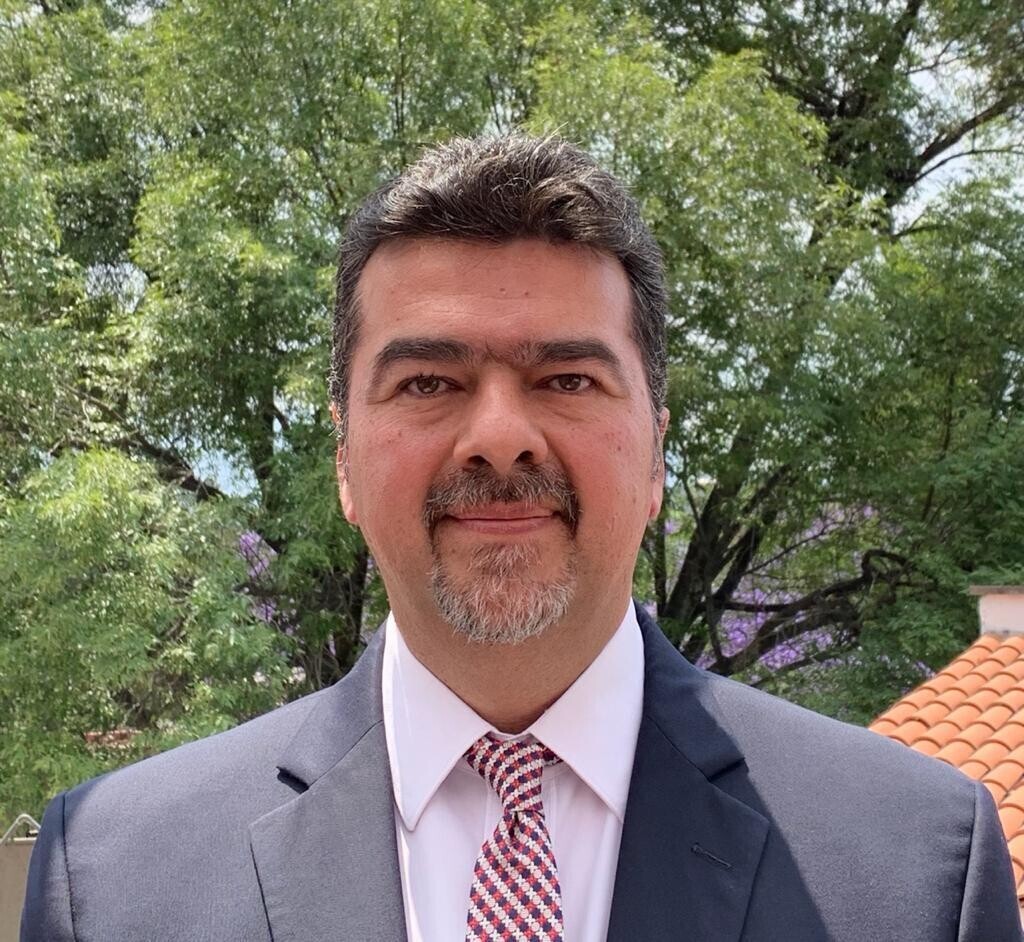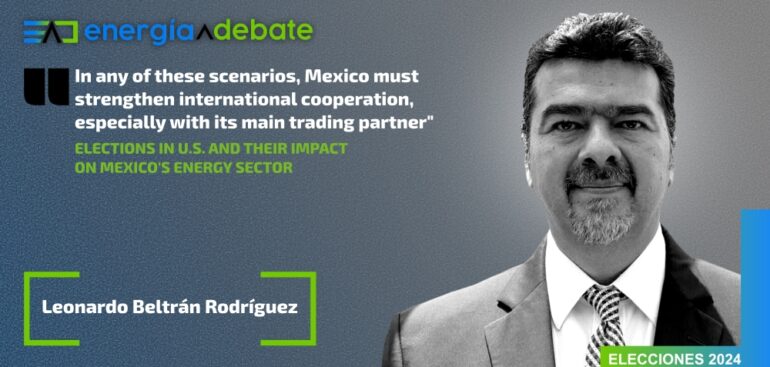by Leonardo Beltrán *
This year the United States of America (USA) and Mexico coincide in their electoral process, by which some changes will occur in both countries and in particular energy policy will be modified depending on election results in both sides of the border. The direction North America takes to consolidate as one of the most competitive regions on the planet will depend on this result as well.
Let’s remember that Mexican energy market is very relevant for USA. According to US Energy Information Administration office data, during the administration of President López Obrador, December 2012-November-2017 natural gas exports to our country practically doubled. US sent to Mexico an average 2.95 billion cubic feet per day (bdf/d) vs. 5.57 bcf between December 2018 and November 2023. In fact, between January and November 2023 three out of every ten cubic feet of natural gas US exported went to Mexico, with an approximate value of 1,315 million dollars per day. In the case of refined products, on average, two out of every ten barrels per day came to our country.[1] Clearly any element that impacts the market has tremendous repercussions.
In this sense, if the current US President, Joseph R. Biden Jr., becomes the election winner, he will double efforts to solidify his vision of creating a clean energy economy, which would influence the exploitation of synergies between the two countries to develope new projects, prioritizing clean energy projects and, to a lesser extent, hydrocarbons projects. In fact, last January a temporary pause was announced on US Liquefied Natural Gas (LNG) export permits to countries that are not a free trade agreement party,[2] including a 14,000 million dollar natural gas export project in Mexico,[3] with the purpose of evaluating both the incremental costs that the export of LNG may have, as well as its impacts on greenhouse gas emissions.
In the event that former President Donald J. Trump wins his party’s candidacy and the election, in 2026 the Mexico-USA-Canada Free Trade Agreement will be reviewed. This could set a ground for the United States to use its permanence as a negotiating card at the Agreement, with the consequent impact on our economy, and thereby limit energy policy decisions in Mexico, if US considers they affect its interests.
In any of these scenarios, Mexico must strengthen international cooperation, especially with its main trading partner, and bring to the negotiating table the practically unlimited opportunities of its energy sector, especially in clean energy.
“In any of these scenarios, Mexico must strengthen international cooperation, especially with its main trading partner.”
[1] Databases can be consulted at following websites: http://www.eia.gov/oil_gas/natural_gas/data_publications/natural_gas_monthly/ngm.htmly https://www.eia.gov/petroleum/supply/monthly/
[2] https://www.whitehouse.gov/briefing-room/statements-releases/2024/01/26/fact-sheet-biden-harris-administration-announces-temporary-pause-on-pending-approvals-of-liquefied-natural-gas-exports/
[3] According to S&P a Mexico Pacific project is awaiting the aproval by US Department of Energy to export natural gas among states to Sonora: https://www.spglobal.com/commodityinsights/en/market-insights/latest-news/lng/013024-us-lng-developers-react-to-white-house-pause-on-issuing-new-lng-permits ; For more information on Mexico Pacific project visit: https://mexicopacific.com/esp/saguaro-lng/saguaro-energia/

*/ Leonardo Beltrán Rodríguez has a degree in Economics from ITAM and in Law from UNAM, as well as a Master’s Degree in Public Administration in International Development from the Kennedy School of Harvard University.
He is a member of the Board at Sustainable Energy for All; Fundación por México; Iniciativa de Transición Justa de los Climate Investment Funds and the Center for Strategic and International Studies, as well as at Iniciative at World Economic Forum’s Accelerating Clean Hydrogen and its Experts’ Network. He has been a mentor for the Latin Amercia Regional Program of the Global Women’s Network for the Energy Transition and Distinguished Visiting Fellow of the Center on Global Energy Policy at Columbia University, Non-Resident Fellow of the Institute of the Americas; Executive Fellow and member of the Advisory Committee of the Extractive Resources Governance Program at the School of Public Policy at the University of Calgary. He has also been an associate of the Mexican Council of International Affairs, a member of the editorial board of the Enerlac magazine of the Latin American Energy Organization (OLADE) and serves as a consultant to the World Bank.
He served as Undersecretary of Planning and Energy Transition of the Ministry of Energy, and General Director of Information and Energy Studies; Director of International Negotiations, and Consultant at BBVA Bancomer.
He has also been a consultant for the Inter-American Development Bank, the Latin American Energy Organization, the United Nations Industrial Development Organization and the Organization for Economic Cooperation and Development.
The opinions expressed in the “Opinion” section are the exclusive responsibility of those who express them and do not necessarily represent the position of Energia a Debate, of its editorial line, of the Editorial Board, nor of P21 Energía. Energia a Debate and Energia a Debate Elecciones 2024 are spaces for information and plural opinion on issues related to the energy sector presented by the candidates for the presidency of Mexico and other people’s elected positions, covering the different subsectors, public policies, regulation, transparency and accountability, with the aim of contributing to the construction of an well-informed citizenry.

